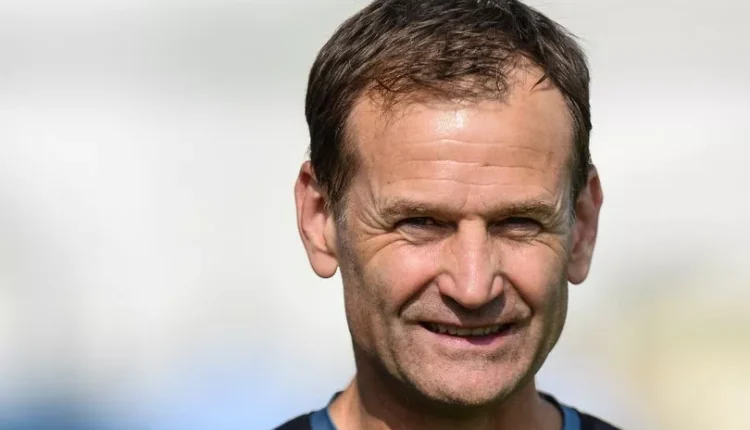“There’s obviously a lot of waste in the player recruitment process and that is why the club is spending a lot of money without getting their value worth. Now I’ll bring in new strategies to change this and I have the perfect strategy to bring in Zirkzee and de Ligt within this week” – Dan Ashworth hints at ‘drastic waste’ and how he would transform Manchester United’s recruitment strategy”
Manchester United's new sporting director, Dan Ashworth, began his role this week and has already outlined his recruitment strategy.
Manchester United’s summer has been heavily influenced by Dutch connections. Ruud van Nistelrooy and Rene Hake are expected to join the coaching staff, while Matthijs de Ligt and Joshua Zirkzee are prime targets for Erik ten Hag’s first-team squad.
If De Ligt joins from Bayern Munich and Zirkzee from Bologna, it would bring the count of Dutch-origin players or those who have played in the Eredivisie to nine, including the marginal Donny van de Beek. This trend suggests that the club’s transfer strategy remains influenced by the manager.
Sir Jim Ratcliffe aimed to avoid such a manager-driven approach when Ineos acquired a stake in the club. He emphasized the need for a robust organizational structure to ensure Manchester United’s success, advocating for a setup where the coach does not report directly to the chief executive.
The newly implemented structure sees Dan Ashworth as the sporting director, reporting to Jean-Claude Blanc (soon to be Omar Berrada), with Jason Wilcox as technical director and Christopher Vivell in a narrower recruitment role.
With Ashworth’s appointment, Manchester United can redefine their transfer decision-making process, reducing Ten Hag’s influence compared to his first two summer windows.
Previously, under the Glazer regime and with Richard Arnold focused on commercial success, Ten Hag played a significant role in guiding transfers.
Ashworth, known for his astute recruitment, will now assume a major role, extending beyond just transfers. At Brighton, he allowed the head of recruitment, Paul Winstanley, to lead deals, a practice he might continue at United.
Ashworth emphasized the necessity of a collaborative approach in a December 2020 interview with Training Ground Guru, which will still allow Erik ten Hag a say, even if his influence is slightly reduced under a new contract.
“If I sign a player that Graham [Potter] doesn’t like or want, it’s a drastic waste of resources. Ultimately, Graham has got to pick 11 players that he thinks will give him the best chance of winning,” Ashworth said.
“If he doesn’t rate the attributes in a player that I do, then we are going to invest a transfer fee, salary and agent’s fee for a player that Graham doesn’t rate or want and who is unlikely to play.
“So how do we work here? Well, we agree on the areas of the pitch that Graham wants to improve. Our first step is ‘what have we already got in the system?’ There have been times when Graham has said: ‘I’d rather work with what we’ve got and make them better than sign a player for the sake of it.’
“But if we haven’t got that position in the U23s or out on loan, then we need to go into the market.”
Ashworth cited the example of Potter wanting a more physical striker, leading them to pursue Danny Welbeck. This summer, Ten Hag wants a central defender and a striker as priorities, and De Ligt is an obvious connection due to his past relationship with Ten Hag.
Ashworth will also rely on his own instincts and contacts. For example, during his time with England, he got to know Tariq Lamptey through the age-group sides. Seeing Lamptey blocked by Reece James at Chelsea, he identified the young right-back as a realistic target for Brighton, where he has since excelled.
